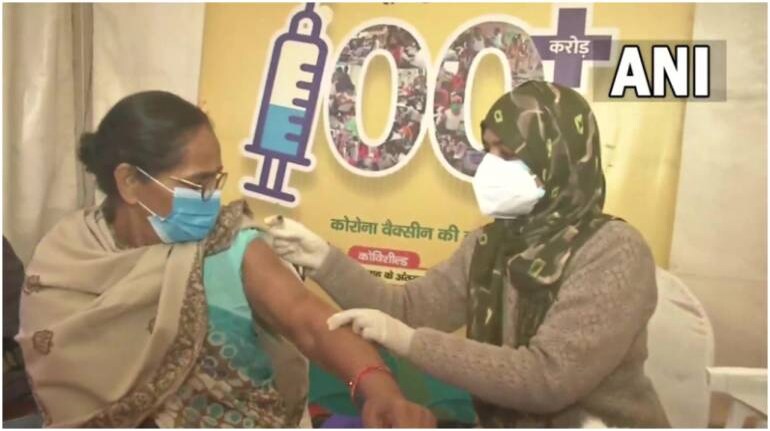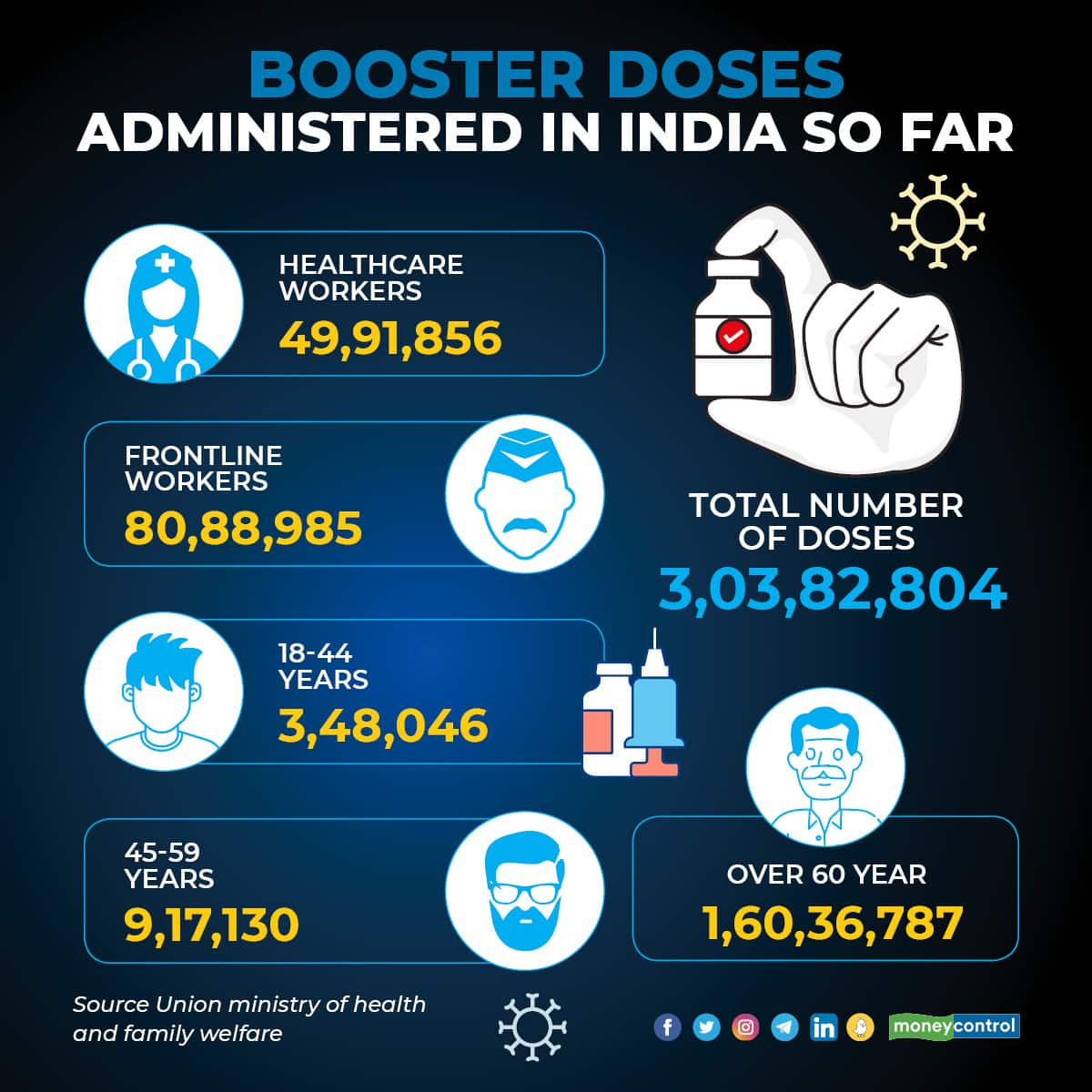



A government decision to allow Indian citizens and students to avail COVID-19 booster doses at a gap required by the country they are travelling to is set to help lakhs of travelers outside the country and is being seen as a welcome move by private hospitals.
Yet government officials said that the mandated gap of 9 months between the second dose and third dose may not be reduced immediately for all adults despite poor uptake of the precautionary doses so far.
Government data shows that only about 12 lakh booster doses have been administered in the 18-59 age group over a month since the shots were opened for all adults under 60. At about 1.6 crore, the uptake is slightly better for those above 60 years.

However, officials admitted that not everyone aged over 60, and not all healthcare and frontline workers eligible for booster doses seem to have taken them despite the government allowing the administration of precautionary doses to them since January.
Officials also said that for now, only those with proof of impending trips outside the country will be allowed to receive a booster dose less than nine months after their second dose, depending on the requirement of the country they have to visit. This condition will continue for all others.
“That is because the existing evidence suggests that there is no need for repeat vaccination after full immunisation for at least 8-9 months,” said a senior official. “This issue has been discussed by the National Technical Advisory Group on Immunisation but so far no need has been felt to reduce the gap.”
On May 12, Union health minister Mansukh Mandaviya, however, announced that a provision would be made on the CoWIN portal shortly to allow people planning travel outside India to receive their precautionary doses sooner than the mandated gap of nine months post the second shot.
The decision concerning international travellers, explained officials, was mainly an administrative one as various representations had been received by the government on the inconvenience to those wishing to go abroad.
Also read I Health insurance premium collected in India grew 25% during peak COVID year
Current conditions
Currently, those above 60 years as well as healthcare and frontline workers are eligible to receive their precautionary doses nine months after their second dose, at both public and private vaccination centres.
People under 60, however, are eligible to receive the booster shots only in private hospitals, where they need to pay around Rs 250 per dose for a shot of Covaxin or Covishield, depending on the vaccine they have received earlier.
As only about 3.3 lakh people aged 18-44 years and 8.8 lakh of those in the 45-59 group have taken their boosters so far, private hospitals and their associations have been suggesting that the specified gap of nine months between the second and third doses should be reduced.
Ayanabh Debgupta, a member of the health services committee at the Federation of Indian Chambers of Commerce and Industry, stressed that the gap of nine months would have been understandable when there were vaccine stock supply concerns.
“But now, nine months is certainly not helping anyone — neither the public at large nor the hospitals, who are already choking with oversupply, thanks to the new replenishment norms to make up for the reduced selling price,” said DebGupta, who is also co-founder and joint managing director of the Medica group of hospitals.
Dr Sanjith Saseedharan, consultant & head, critical care, SL Raheja Hospital in Mumbai, shared similar views.
“It will be very beneficial to reduce the duration from 9 to 6 months. What is known is that more than 90 percent immunity is seen up to 7-8 weeks after the booster, and then it starts waning exponentially to low levels up to 8 to 9 months,” he said.
“It is also known that we should not give the booster earlier than four months. Our best defence against COVID and its variants has been vaccination, and that seems like the only thing that helps us against waning immunity. The flexibility of a shorter interval before the booster will increase the coverage of vaccination to a larger proportion of individuals,” he said.
Saseedharan emphasised that this will enable the country to maintain a larger pool of immune individuals, which may prevent the spread and a reemergence and spread of COVID-19, as was witnessed in the second wave.
‘Changing name might help’
Senior clinician Dr Sameer Gupta, who is co-chair of the hospitals and diagnostics committee of the PHD Chamber of Commerce and Industry, said that as the third dose was being called a “precaution dose” by the government, rather than a booster dose, it was making the majority of the people believe it is only an option.
“The impression that most people have is that they are safe after full vaccination, as the third vaccine is only an additional safety advice, which they think they can live without,” he said.
“This should change and the third vaccine dose should be promoted as a booster dose as there is now sufficient evidence to suggest that immunity against COVID-19 comes down considerably 5-6 months after the full vaccination,” Gupta said.
Discover the latest Business News, Sensex, and Nifty updates. Obtain Personal Finance insights, tax queries, and expert opinions on Moneycontrol or download the Moneycontrol App to stay updated!
Find the best of Al News in one place, specially curated for you every weekend.
Stay on top of the latest tech trends and biggest startup news.